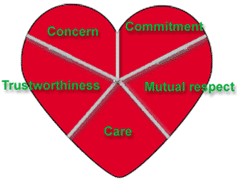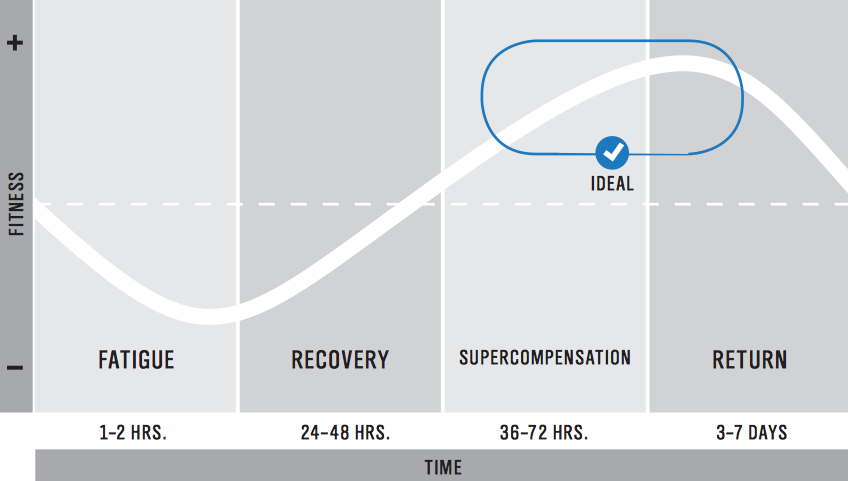When we confront with stress in our lives, we usually sigh in order to relieve stress, as if sighing could help us relieve some of the negative emotions from our body. According to the dictionary, sighing is a action “to let out one’s breath audibly, as from sorrow, weariness, or relief.” There are also superstitious belief that sighing is bad for body because it release all the energy one stored in their body which was used to resist against stress.

Why do we sigh? Scientist had discovered that the reason we sigh is because we want to reset a breathing pattern in order to prevent abnormal breathing and make our breathing more flexible. This definition sound realistic and is the easiest way for the public to accept. However, the definition had left out one of the most important factor that is closely related to sighing, emotions. A lot of time people sigh not because they consciously wanted to adjust their breathing pattern, but more likely to relieve. According to a group of studies(Abelson et al, 2001; Schwartz et al, 1996; Wilhelm et al, 2001a; Wilhelm et al, 2001b), excessive sighing is considered a panic disorder.
An other studies had conducted an experiment where 80 patients voluntarily perform a minute of hyperventilation, also known as sighing. They later on analyzed the oxygen inside of the brain during this procedure and graphed it out. As you can see, the darker the color is in the graph the less oxygen there are in the brain. Therefore the more you sigh the less oxygen is left in your brain.

In other cases, sighing is also a sign of stress. People who are under stress and anxiety tend to sigh more than normal people who do not have problems like that. According to studies (Teigen, et al, 2008), sighing can be an action to exclude the desires and intentions that are not wanted. Various causes could lead to intensify sighing, such as anxiety, overheating, stress and etc. Since sighing could also suggest weak muscle tissue in lungs therefore the body needs chest to help breathing procedure.
Scientist (Aljadeff G, Molho M, Katz I, Benzaray S, Yemini Z, Shiner RJ, Pattern of lung volumes in patients with sighing breathing, Thorax. 1993 Aug; 48(8): 809-11.) had discovered that sighing is a closely related to hyperventilating which is a severe breathing disorder. While hyperventilating patient exhale more than they inhale. This was caused by various reasons that resembles those that caused sighing. Therefore study supported the correlation between sighing and hyperventilation.
So is sighing bad for health? Hyperventilating is certainly bad and could cause harm one’s life, but sighing, which is correlated with hyperventilation , is a common phenomenon. This suggest that there are third variables caused in this relation. The cause may be that hyperventilation is inherited from the parents or predecessors, so sighing may be a symptom of it, or one’s environment could cause sighing more then hyperventilation break out after stress accumulate. The study about hyperventilation and sighing also pointed out that other studies had discovered artificial sigh have positive effects on oxygenation. Therefore there might be a Texas sharp shooter fallacy occurred. Even reverse causation is possible in this case: if someone has hyperventilation, they might sigh more than normal people. Therefore in order to understand whether sighing is truly bad for health or not, one must discovered its mechanism.
In sum, sighing may not be influence one’s health and cause major health issues, but it may serves as a sign of health problem so just be cautious while you sigh, be sure to feel your breath.











 Hemochromatosis is a condition when body absorbs and stores too much blood. Adequate iron in our blood could keep our immune system running and absorb more oxygen, but excessive iron stores in our liver, heart and other important organs could be toxic. According to a
Hemochromatosis is a condition when body absorbs and stores too much blood. Adequate iron in our blood could keep our immune system running and absorb more oxygen, but excessive iron stores in our liver, heart and other important organs could be toxic. According to a  It also discussed how drawing certain amount of blood from one’s body could help reduce the stroke volume and declot coagulated blood.
It also discussed how drawing certain amount of blood from one’s body could help reduce the stroke volume and declot coagulated blood.  In the research, they particularly studied teenager from 12-18 and discovered that among 268 subjects, “26 percent of the basketball player’s patellar tenon contain ultrasonographic hypoechoic region. Ultrasonographic abnormalities are more common among 17-18 year old players than the younger players.” Indicating that we are more likely to get injured during this period of age. Therefore warming up and protection are needed before sports activity. Doing
In the research, they particularly studied teenager from 12-18 and discovered that among 268 subjects, “26 percent of the basketball player’s patellar tenon contain ultrasonographic hypoechoic region. Ultrasonographic abnormalities are more common among 17-18 year old players than the younger players.” Indicating that we are more likely to get injured during this period of age. Therefore warming up and protection are needed before sports activity. Doing  could also benefit preventing players from getting injured in sports. Although “stretches could not reduce the risk of getting injured in games, but it could offer some benefits of risk prevention. ” Most teenagers
could also benefit preventing players from getting injured in sports. Although “stretches could not reduce the risk of getting injured in games, but it could offer some benefits of risk prevention. ” Most teenagers 








 This box of jello is made of these following
This box of jello is made of these following 
 is one of the most common artificial color that is used in the US. One
is one of the most common artificial color that is used in the US. One  in it which the FDA had been advocating the prohibition of this artificial dye since 2003 because “patients were dying from refractory hypotension and metabolic acidosis which was caused by blue number 1.”
in it which the FDA had been advocating the prohibition of this artificial dye since 2003 because “patients were dying from refractory hypotension and metabolic acidosis which was caused by blue number 1.” , with the speed of just under 20 miles per hour and two revolutions per second of spin, at 20.9 feet from the basket,” they player would very likely hit a perfect three point shot. Although he does not understand the game well enough, he still gave an incredibly helpful information. In order to make a shot, the arc of releasing a ball must be above 33 degrees. This finding suggests that shooting a good a three pointers had a lot to do with the releasing arc.
, with the speed of just under 20 miles per hour and two revolutions per second of spin, at 20.9 feet from the basket,” they player would very likely hit a perfect three point shot. Although he does not understand the game well enough, he still gave an incredibly helpful information. In order to make a shot, the arc of releasing a ball must be above 33 degrees. This finding suggests that shooting a good a three pointers had a lot to do with the releasing arc.


 ever success, and how could someone who shoots like that ever survive in the most competitive sports in the world? Here comes the question, do you really need a good shooting form to be a good shooter in basketball?
ever success, and how could someone who shoots like that ever survive in the most competitive sports in the world? Here comes the question, do you really need a good shooting form to be a good shooter in basketball? ,
, ,
,  and
and  they all have their unique shooting style.
they all have their unique shooting style.